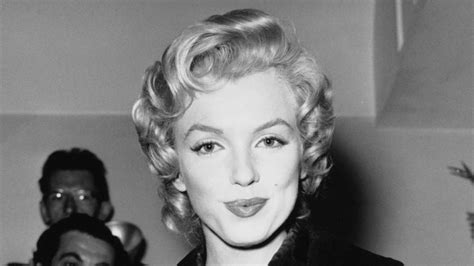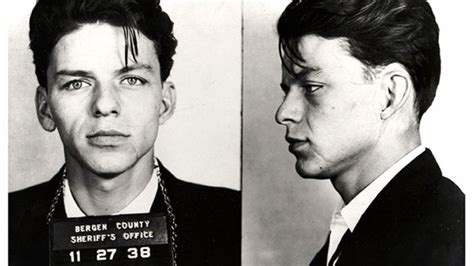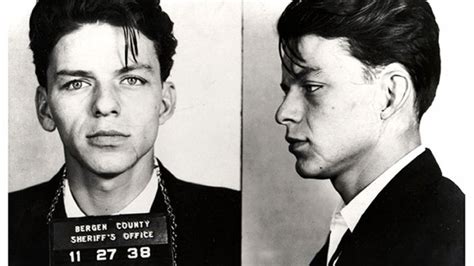The life and career of Frank Sinatra are intricately woven with the threads of the American mob, a connection that has sparked both fascination and controversy. As one of the most iconic entertainers of the 20th century, Sinatra's relationships with notorious figures like Lucky Luciano, Meyer Lansky, and Sam Giancana have been the subject of much speculation and debate. To understand the extent of Sinatra's involvement with the mob, it's essential to delve into the historical context of his early life, his rise to fame, and the social and cultural landscape of the time.
The Early Years and the Genesis of a Legend

Frank Sinatra was born on December 12, 1915, in Hoboken, New Jersey, to Italian immigrant parents. His early life was marked by a strong sense of community and the influence of the Italian-American culture, which would later play a significant role in his connections with the mob. Sinatra’s entry into the world of entertainment was facilitated by his mother, who encouraged his singing talent from a young age. He began performing locally and eventually landed his first contract with the Hoboken Four, a vocal group that gained modest success.
Rise to Fame and the Mob Connection
Sinatra’s solo career took off in the early 1940s, with his smooth voice and charismatic stage presence captivating audiences nationwide. This period of his life coincided with the height of the American mob’s influence, particularly in the entertainment industry. Figures like Lucky Luciano and Meyer Lansky were not only powerful crime bosses but also had significant interests in nightclubs, casinos, and other entertainment venues. Sinatra’s performances in these establishments and his friendships with mob-connected individuals have been well-documented, sparking questions about the nature of these relationships.
| Notable Figures | Connection to Sinatra |
|---|---|
| Lucky Luciano | Early supporter and potential benefactor |
| Meyer Lansky | Financial backer for some of Sinatra's ventures |
| Sam Giancana | Close friend and alleged mob connection |

The Rat Pack and Las Vegas

The 1950s and 1960s saw Sinatra’s career reach new heights, particularly with the formation of the Rat Pack, a group of entertainers that included Dean Martin, Sammy Davis Jr., and Peter Lawford, among others. Their performances in Las Vegas, a city heavily influenced by the mob, further solidified Sinatra’s connections with the underworld. The Cal Neva Lodge, a resort in Lake Tahoe, co-owned by Sinatra and Giancana, became a hub for both entertainment and illicit activities, drawing scrutiny from law enforcement.
Legacy and Controversy
Frank Sinatra’s legacy is a testament to his enduring talent and charisma, but it is also marred by the controversies surrounding his mob connections. Despite numerous investigations and allegations, Sinatra was never charged with any crime related to his associations with the mob. However, these relationships undoubtedly played a role in shaping his career and personal life, leaving behind a legacy that is both celebrated and scrutinized.
Key Points
- Sinatra's early life and career were influenced by his Italian-American community and the mob's presence in the entertainment industry.
- His relationships with Lucky Luciano, Meyer Lansky, and Sam Giancana have been the subject of much speculation and debate.
- The Rat Pack and Sinatra's performances in Las Vegas further solidified his connections with the mob.
- Despite controversies, Sinatra was never charged with any crime related to his mob connections.
- His legacy remains complex, with both his talent and his associations with the mob being integral parts of his story.
In conclusion, Frank Sinatra's life and career are a fascinating example of the intersection of entertainment, crime, and American culture. His connections with the mob, while controversial, are a significant part of his legacy, reflecting both the era in which he lived and the complexities of his own character. As we look back on his life, it's essential to consider the historical context, the societal norms of the time, and the multifaceted nature of Sinatra's relationships with the mob.
What was the nature of Sinatra’s relationship with the mob?
+Sinatra’s relationships with mob figures were complex and multifaceted, involving both personal friendships and professional associations. While he benefited from these connections, the extent of his involvement in their criminal activities remains unclear.
How did Sinatra’s connections with the mob influence his career?
+Sinatra’s mob connections played a significant role in his early career, providing him with access to influential figures and venues. However, these associations also drew scrutiny and controversy, affecting his public image and legacy.
What is the legacy of Frank Sinatra’s connections with the mob?
+Sinatra’s legacy is marked by both his incredible talent and the controversies surrounding his mob connections. These relationships are an integral part of his story, reflecting the complexities of his character and the era in which he lived.
